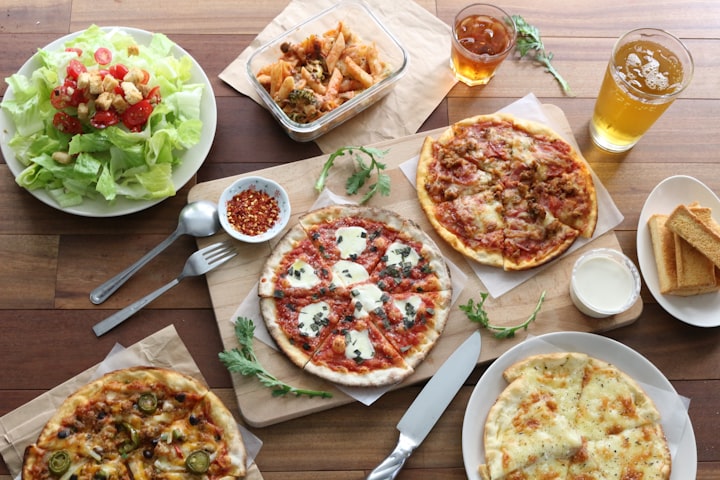In the diets of kids and teens today, ultraprocessed foods make up two thirds of the calories.
Unveiling the Diet Dilemma: How Ultraprocessed Foods Dominate Two-Thirds of Kids' and Teens' Caloric Intake

An examination of data spreading nearly 20 years revealed that ultraprocessed foods currently account for more than two-thirds of the calories consumed by kids and teens in the United States.
Researchers that published their results in the medical journal JAMA found that 67% of calories consumed in 2018 came from ultraprocessed foods, such as frozen pizza, microwave meals, wrapped snacks, and desserts. This percentage increased from 61% in 1999. The study examined 33,795 kids and teenagers' diets across the country.
Industrial processing uses methods not found in home-cooked meals that modify food's consistency, taste, and color in an effort to make it more convenient, affordable, and fascinating. While this can keep food fresher longer and enable some foods to be fortified with vitamins, it also alters food's color and consistency. The food industry also promotes them quickly.
The Friedman School of Nutrition Science and Policy at Tufts University in Boston hires nutritionist and cancer epidemiologist Fang Fang Zhang as a senior author. She claims that while some whole grain breads and dairy products are ultra-processed, they are still healthier than other ultra-processed foods.
"However, the rising consumption of ultra-processed foods by kids and teenagers is cause for concern because many of these foods are less healthful than minimally or unprocessed foods, having less fiber, more sugar, and salt."
Each year, the children or an adult acting on their behalf were asked by trained interviewers regarding what they had eaten during the previous 24 hours, with the goal of gathering diet-related data for the study. The National Health and Nutrition Examination Survey was used to collect the data. According to the study, the amount of calories consumed from healthier unprocessed or minimally processed foods fell from 28.8% to 23.5% between 1999 and 2018.
In accordance to the study, the remaining percentage of calories came from flavor enhancers like sugar, honey, maple syrup, and butter as well as mildly processed foods like cheese and canned fruits and vegetables.
Based to the study, ready-to-eat or ready-to-heat foods like frozen pizza and burgers, as well as takeout, contributed to the largest increase in calories, rising from 2.2% to 11.2%. Packaged sweet snacks and desserts saw the second biggest increase in consumption, rising from 10.6% to 12.9%.
Although there is an unclear connection between ultraprocessed food and children's health, a recent study conducted in the UK discovered that children who consume more ultraprocessed food have a higher chance of becoming overweight or obese adults.
The study has substantial implications for future health, according to experts, because childhood is a crucial time for forming eating habits and biological development.
Assistant professors Katie Meyer and Lindsey Smith Taillie of the University of North Carolina's Gillings School of Global Public Health's nutrition department wrote, "The current food system is structured to promote excessive consumption of ultra-processed foods through a variety of strategies, including price and promotions, aggressive advertising, including to youths and specifically Black and Latino youths, and high availability of these products in schools.” Although there is a complex connection between ultraprocessed food and children's health, a recent study conducted in the UK discovered that children who consume more ultraprocessed food have a higher chance of becoming overweight or obese adults.
The study has significant consequences for future health, according to experts, because childhood is a crucial time for forming eating habits and biological development.
In an analysis of the research. They did not participate in the study. Positive news indicated that initiatives to reduce the consumption of sugar-filled refreshments, like soda taxes, had been successful: The percentage of total calories from beverages with added sugar decreased from 10.8% to 5.3%.
Zhang stated, "We have to submit an application the same energy and dedication to other ultra-processed, unhealthy foods like cakes, cookies, doughnuts, and brownies."
Compared to their White peers, Black non-Hispanic youths saw a greater increase in the amount of ultra-processed foods in their diets. The study stated that due to a lack of nationally representative information, it was not possible to evaluate trends in other racial or ethnic groups. It did point out, though, that Mexican American youths consistently consume fewer ultraprocessed foods, which the authors believed might be related to more Hispanic families cooking at home.
The study also found that the consumption of ultraprocessed foods was not impacted by the parent's schooling or family income, indicating that most children's diets already include them.
The study's limitations, according to the authors, include the fact that recalling food intake isn't always a reliable indicator of dietary intake. In addition, there is a tendency for not reporting behaviors that are socially undesirable, like eating unhealthy food.
Furthermore, correctly classifying ultraprocessed food can be difficult since it requires a complete ingredient list, which is not something that kids are likely to provide on a survey.
Improved techniques for classifying and evaluating diets are required for understanding the patterns and workings of the consumption of ultra-processed foods, according to Mayer and Taillie.





Comments (1)
I'm keen on this article; it's written skillfully and offers great information.